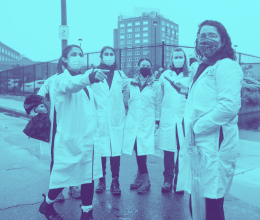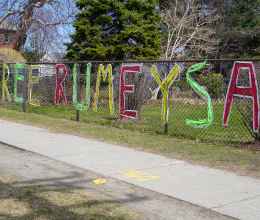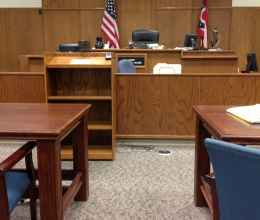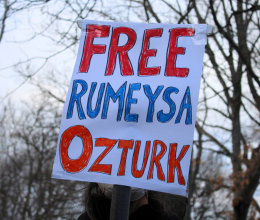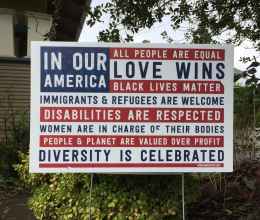
The ACLU of Massachusetts – together with law firm Prince Lobel – today filed a lawsuit challenging the City of Holyoke’s new policy of prohibiting “temporary” lawn signs on residential or commercial property in the city during winter months and prohibiting bumper stickers all year-round. Filed on behalf of seven Holyoke residents, the lawsuit calls for an end to a practice that chills speech.
On October 16, the Holyoke City Council – over the veto of Mayor Alex Morse – amended the City’s sign ordinance to regulate “temporary signs” on residential and commercial properties in the months of December, January, and February of each year in any location within the city. The ordinance also prohibits “temporary signs” on vehicles, including bumper stickers, year-round. In proposing the amendments to the sign ordinance, a city councilor expressly stated that the ban on lawn signs is meant to emphasize the finite nature of political campaigns.
“There is no right more fundamental to democracy than the right of an individual to express their personal political views,” said Carol Rose, executive director of the ACLU of Massachusetts. “At a time when the federal government seeks to chill free speech, Massachusetts residents should be encouraged to voice their support and opposition for candidates and social issues, not silenced.”
According to the lawsuit, the sign ordinance fails to clearly define “temporary signs” and “permanent signs,” offering no guidance as to which kinds of signs are prohibited during the three-month period. It allows the display of flags and other governmental insignia, while prohibiting signs supporting candidates for office, celebrating religious holidays, or expressing social and political messages. People who display “temporary signs” in their yards or on their cars are subject to increasing level of fines for each sign and each day that a sign remains in place.
Holyoke residents involved in the lawsuit have signs on their lawns or bumper stickers on their cars, and would be prevented from displaying these if the city enforces the sign ordinance. In addition to signs for special elections, many of the signs or bumper stickers reflect ongoing social and political issues: Several residents have “Black Lives Matter” and “Welcome Neighbor” signs. One neighbor wishes to place a holiday sign in her yard this December, reading “Peace on Earth.”
“Courts across the nation – including the United States Supreme Court – have affirmed that people have a right to express personal political views through signs displayed on their property,” said Ruth Bourquin, senior attorney at the ACLU of Massachusetts. “All residents should be free to express their opinions on important political or social issues without fear of censorship from the city.”
The lawsuit, filed in federal court, urges the court to block enforcement of the recent amendments to the Holyoke sign ordinance.
